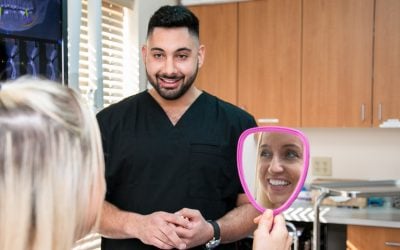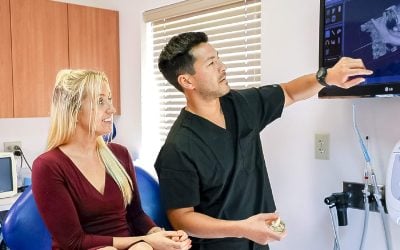We understand that the thought of having a tooth removed can be unsettling, but we promise to make the experience as comfortable and seamless as possible. Our skilled Quincy, MA, team members have years of experience performing extractions and will work diligently to ensure that the procedure is performed smoothly, quickly, and efficiently.
While we will always ensure that other options have been exhausted before recommending an extraction, there are some instances in which this is the best course of action. To learn more about extraction procedures, please read below! Contact our office if you have any questions.
Reasons for Tooth Extractions
There are many reasons why teeth may need to be extracted. Some common reasons include the following:
- Crowding: When there is not enough space in the mouth for all of the teeth, they can become crowded. This can cause problems with biting and chewing and can also lead to tooth decay and gum disease as other teeth shift out of alignment.
- Tooth Decay: If a tooth is heavily decayed, it may need to be extracted to prevent the spread of infection or loss of additional teeth.
- Injury or Trauma: If a tooth has been injured beyond repair, it may need to be extracted.
- Impaction: When a tooth does not erupt through the gum line, the impaction can cause pain, swelling, infection, or cysts.
Types of Tooth Extractions
Depending on the circumstances of the extraction, we may remove the tooth through a variety of different methods. Here, we will outline some of the most common extraction procedures.
- Simple extraction: A simple extraction is performed on a tooth that has already emerged through the gum tissue. Using special instruments, we will carefully shift the tooth to loosen it from any supporting ligaments before removal. Typically, this type of extraction is provided by a general dentist.
- Surgical extraction: A surgical extraction is performed on a tooth that has not yet emerged through the gum tissue or has only partially emerged. This type of extraction is more complex and requires surgery. As a part of this process, we will create an opening in the gum tissue and remove the tooth – either as a whole piece or in sections. The area will then be sutured closed for healing.
- Complex extractions: Complex extractions are performed on teeth following a traumatic injury, resulting in only fragments of the tooth remaining in the socket. In these cases, we need to carefully remove debris from the site while preserving any healthy tissue. This maximizes the possibility of the area healing properly and being capable of supporting implants in the future.
Tooth Extraction Recovery
There are a few things you can do to help ensure a speedy and comfortable recovery following a tooth extraction. First, be sure to follow any specific guidelines we provide at the time of the appointment. This may include using a special mouthwash, taking antibiotics, and avoiding certain foods. We may provide unique aftercare instructions based on the type of extraction performed. Should you require any general recovery instructions, refer to the following:
- Rest: It is important to rest following a tooth extraction. This means avoiding strenuous activity, such as exercise, for at least 24 hours.
- Ice: Applying ice to the area can help reduce swelling. Do this for 20 minutes at a time, several times a day.
- Pain relief: Over-the-counter pain relievers, such as ibuprofen or acetaminophen, can help manage any discomfort you may experience.
- Oral care: Gently brush your teeth while carefully avoiding the extraction site.
- Precautions: For at least three days, avoid using a straw, spitting, or smoking to prevent dislodging a blood clot or causing a dry socket.
- Diet: Stick to soft foods and liquids for the first day or two following your extraction. Eating hard, crunchy, or chewy foods may cause discomfort or disrupt the healing process.
If you have any questions or concerns about your recovery, don’t hesitate to contact our office. Our team will be happy to provide guidance and answer any questions you may have.

